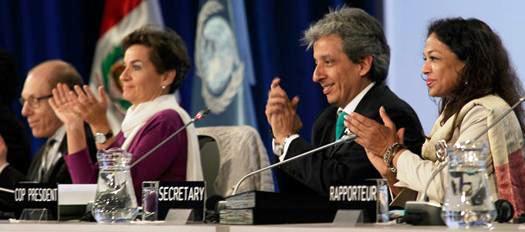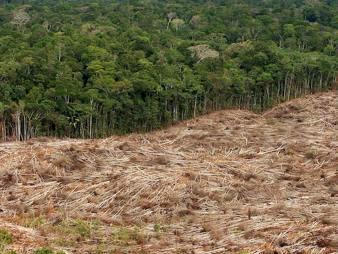
Jakarta – Procter & Gamble, which makes Head & Shoulders, is sourcing palm oil from companies connected to orangutan habitat clearance in Indonesia, making consumers part of a wide-spread forest destruction scandal. That’s according to findings from a year-long investigation by Greenpeace International, which also reveals that current sourcing policies of the personal care company also expose its supply chain to forest fires and habitat destruction that is pushing the Sumatran tiger to the edge of extinction.
Palm oil is a common ingredient in detergents, shampoos, cosmetics and other household goods that P&G manufactures.
“The maker of Head & Shoulders needs to stop bringing rainforest destruction into our showers. It must clean up its act and guarantee its customers that these products are forest-friendly. Procter & Gamble should follow the lead of other palm oil using companies like Unilever, Nestlé and L’Oréal, which have already promised to clean up their supply chains,” said Bustar Maitar, Head of the Indonesian Forest Campaign at Greenpeace International.
Greenpeace found that orangutan habitat was being cleared in plantations linked to P&G’s supply chain. Land used for palm oil cultivation owned by the BW Plantation Group, a company connected to P&G’s supply chain, also correlates with the deaths and burials of orangutans next to the Tanjung Puting National Park. In other cases, Greenpeace documented ongoing forest clearance within the concessions of two producers known to directly supply P&G.
“We’ve been confronting P&G over the last eight months with how it’s exposing consumers to forest destruction. Instead of taking urgent action, the company has been greenwashing its actions. It’s time P&G committed 100% to forest protection and stops making its customers part of the Sumatran tiger’s extinction,” said Areeba Hamid, forest campaigner at Greenpeace International.

Companies without strong policies to cut deforestation from their products are exposed to illegal practices in high-risk areas, like the province of Riau in Sumatra. An example of this is the PT Rokan Adi Raya concession, which includes tiger habitat plus forested deep peat, and experienced large-scale forest clearance and uncontrolled fires last year. In June 2013, over 150 fire hotspots were recorded within this concession. Many of P&G’s palm oil suppliers ship from Dumai, the main port of Riau province.
“Greenpeace believes palm oil must make a genuine contribution to Indonesia’s development. Progressive palm oil producers in the Palm Oil Innovation Group, along with ambitious commitments from big palm oil players GAR and Wilmar, prove that there is a business case for responsible palm oil. There is no excuse for companies like P&G, Reckitt Benckiser and Colgate Palmolive to delay immediate action on deforestation,” said Bustar Maitar.
Indonesia’s forests are disappearing at a rate of more than nine Olympic swimming pools each minute, with palm oil being the biggest driver of forest destruction. Through a global campaign launched on February 26, Greenpeace is demanding Procter & Gamble end its role in forest destruction.
Source: Greenpeace.
Notes:
1. A summary of the research findings and media briefing is at: http://www.greenpeace.org/international/en/news/Blogs/makingwaves/dirty-palm-oil/blog/48308/
2. The companies in the Tiger Challenge are ranked according to the efforts they are making to ensure palm oil in their supply chains is tiger and forest friendly: www.greenpeace.org/tigerchallenge
3. Greenpeace launched a petition on February 26 calling on P&G to guarantee forest and tiger-friendly products: www.protectparadise.org/dirtysecret


















